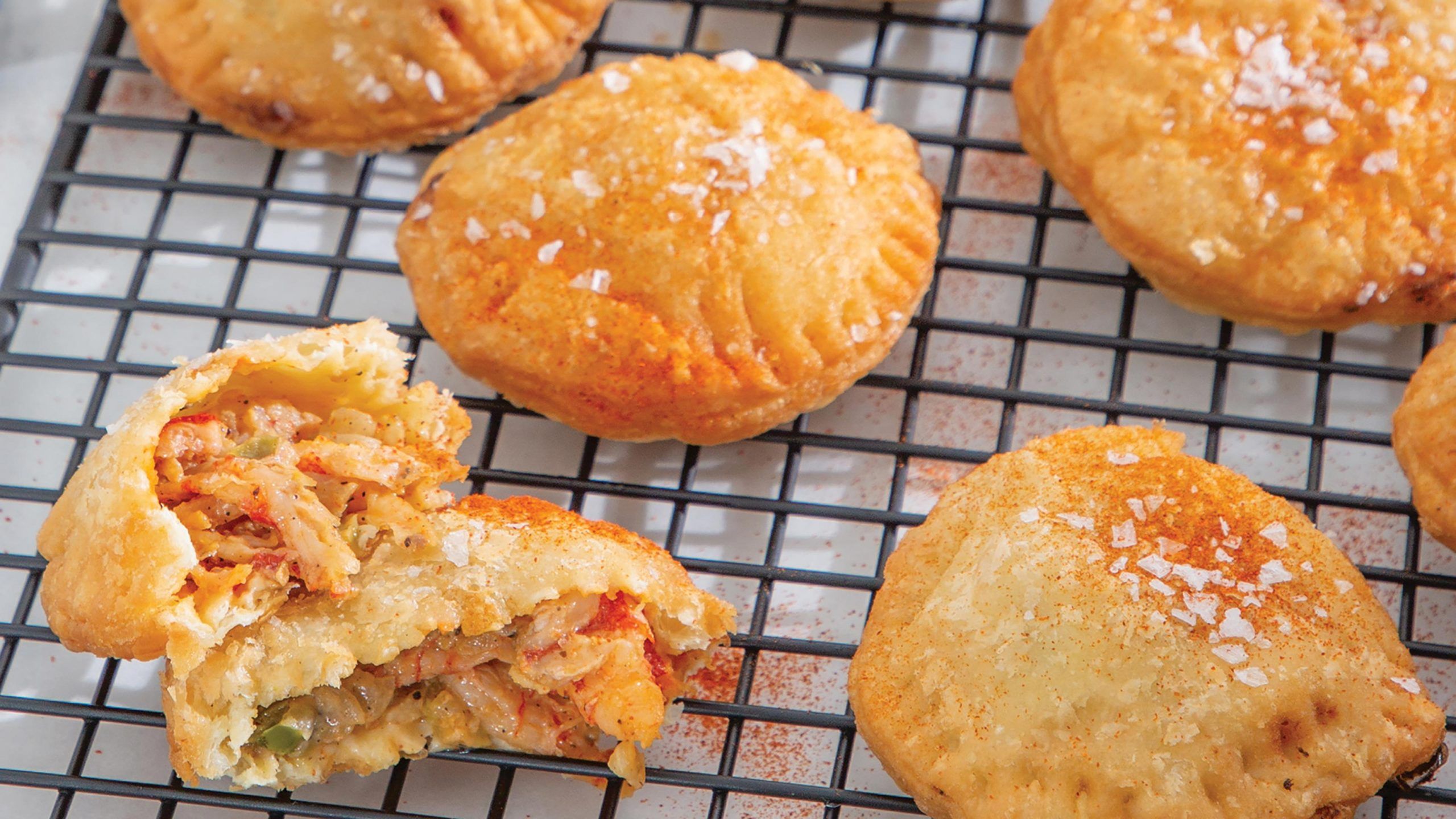Pistolettes: Two Breads, One Name
Louisiana’s culinary landscape is rich with unique dishes, and among its most intriguing offerings is the pistolette. The name itself sparks a bit of a mystery: in Louisiana, “pistolette” refers to two distinct types of bread, each with its own unique character and culinary traditions. This fascinating case of a single word holding dual meanings showcases the state’s diverse cultural influences.
Two Sides of the Same Coin: Cajun vs. New Orleans Pistolettes
Imagine yourself at a bustling festival in Lafayette, surrounded by the infectious rhythms of Cajun music. The tantalizing aroma of freshly fried food draws you in, and you find yourself holding a warm, golden-brown pistolette. Crispy on the outside, soft on the inside, this Cajun pistolette is often hollowed out and generously filled with savory delights like crawfish étouffée or shrimp. It’s a quintessential taste of Cajun comfort food.
Now, picture yourself strolling through the vibrant streets of New Orleans. The air is thick with the scent of spices and fresh herbs. You stop at a street vendor, eager to try the city’s iconic bánh mì. The vendor hands you a pistolette – this time, a shorter, airier roll, reminiscent of a baguette. It’s overflowing with pickled vegetables, fragrant cilantro, spicy jalapeños, and perhaps some flavorful grilled pork. This is the New Orleans pistolette, a star player in the bánh mì experience.
Two distinct breads, one shared name – a true reflection of Louisiana’s culinary heritage. Let’s dive deeper into what makes each pistolette special.
The Cajun Pistolette: A Deep-Fried Delight
In Cajun country, the pistolette is typically a small, round roll, deep-fried to a perfect golden hue. Think of it as a puffed-up, crispy pocket just waiting to be filled with delicious ingredients. The bounty of the Gulf – crawfish, shrimp, oysters – often finds a home within this crispy shell. Ground meat, melted cheese, and fiery jalapeños are other common choices, each adding their own unique flair. The Cajun pistolette is a culinary emblem of home-style comfort food.
The New Orleans Pistolette: A Bánh Mì Essential
The Vietnamese pistolette plays a pivotal role in the iconic bánh mì. In New Orleans, this pistolette is a shorter, crispier version of the French baguette, ideally sized for cradling a variety of fillings. Its airy texture and crusty exterior provide a delightful contrast to the vibrant ingredients within. Biting into that crisp outer layer, then encountering the soft bread and the explosion of flavors from within, is a sensory experience unique to the New Orleans bánh mì.
No discussion of the Vietnamese pistolette would be complete without mentioning Dong Phuong Oriental Bakery, a New Orleans institution and a vital part of the city’s Vietnamese community. This beloved bakery is the source for countless bánh mì establishments and individuals seeking the perfect pistolette. Some might even argue that Dong Phuong’s pistolettes set the gold standard, their texture and flavor elevating the bánh mì to new heights.
Unraveling the Origins: Where Did the Pistolette Come From?
The origins of the pistolette are shrouded in a bit of mystery, adding to the intrigue of this Louisiana staple. The very word “pistolette” offers a clue, derived from the French word “pistolet,” meaning a small, round roll. This suggests a French connection, which is plausible, though the French and Belgian “pistolets” are typically simple rolls, quite unlike their Louisiana counterparts.
The Cajun Pistolette: A Culinary Puzzle
Pinpointing the exact birthplace of the Cajun pistolette is a challenge. Lafayette and Lake Charles, both known for their rich Cajun heritage, often lay claim to this culinary creation. The truth is probably a more intricate tale, woven from a tapestry of influences and culinary ingenuity. It’s likely that the tradition of stuffing pistolettes emerged gradually, with cooks experimenting with different fillings, transforming humble ingredients into satisfying meals.
The New Orleans Pistolette: A Fusion of Flavors
The New Orleans pistolette’s story is intrinsically linked to the city’s Vietnamese community and the arrival of the bánh mì. French colonialism in Vietnam introduced the baguette-style bread, which Vietnamese immigrants then brought to New Orleans, adapting it to local tastes and incorporating it into the bánh mì. This culinary fusion has created a beloved dish that embodies the city’s vibrant multiculturalism.
The “Pistolette Gun” Myth
Given its French etymology, some might wonder about a “pistolette gun.” It’s important to clarify that in Louisiana, “pistolette” refers exclusively to food. The name likely alludes to the bread’s small, oblong shape, reminiscent of a pistol barrel. It’s a culinary tribute, not a ballistic reference.
The Pistolette: More Than Just Bread
The pistolette, in its two distinct forms, is more than just bread. It represents a dynamic intersection of cultures and culinary traditions. It symbolizes Louisiana’s unique identity, its ability to adapt and embrace diverse influences.
Whether enjoyed stuffed with spicy crawfish in Lafayette or filled with vibrant bánh mì ingredients in New Orleans, the pistolette offers a delicious journey through Louisiana’s culinary landscape. It’s a testament to the state’s rich heritage and a symbol of its vibrant food scene. Who knows what the future holds for the pistolette? Perhaps we’ll see innovative new fillings or creative twists on the classic recipes. One thing is for sure: the pistolette, in all its delicious variations, will continue to be a beloved Louisiana staple. And while you savor the delights of a pistolette, you might consider pairing it with the smoky sweetness of Porter’s Chicken Maplewood or enjoying it after a day exploring the natural beauty of the Pinellas County Aquatic Preserve.
- China II Review: Delicious Food & Speedy Service - April 17, 2025
- Understand Virginia’s Flag: History & Debate - April 17, 2025
- Explore Long Island’s Map: Unique Regions & Insights - April 17, 2025

















2 thoughts on “Louisiana Pistolettes: A Tale of Two Breads”
Comments are closed.